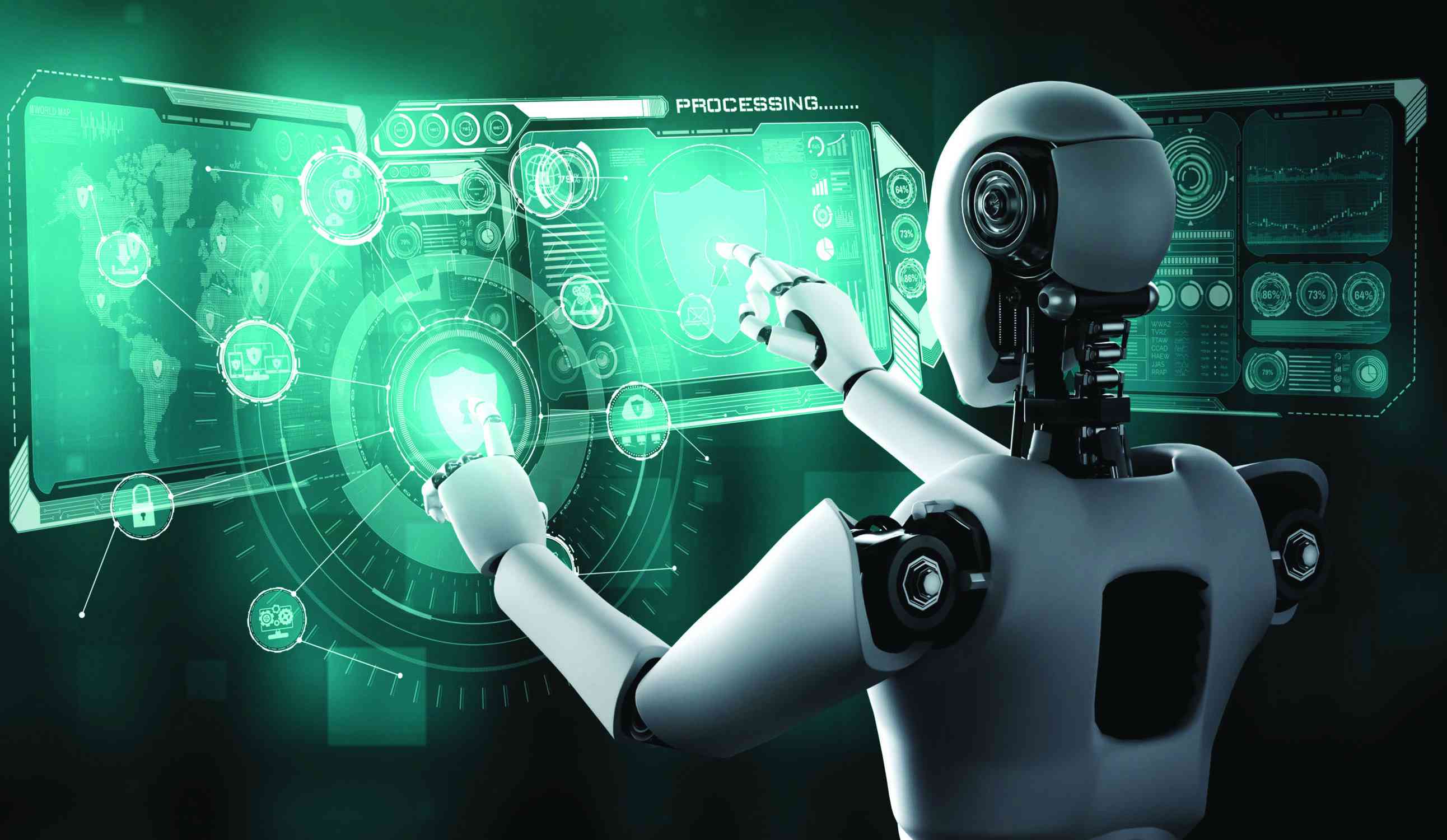
BENEATH the impressive veneer of algorithms and neural networks lies a cold, calculated reality: AI is not conscious.
Anyone, who has worked hands-on with AI systems or analysed the intricate weights and models behind these algorithms will quickly observe that, at its core, AI remains a meticulously crafted simulation.
Like a blockbuster film that portrays lifelike characters on screen, AI emulates brilliance and seemingly thoughtful behaviour through a series of mathematical computations.
However, regardless of how convincingly these systems mimic human interaction, they lack the inner life and subjective experience that define consciousness.
There is no heartbeat in the circuits, no internal narrative to these programmes, only lines of code performing pre-determined tasks.
Imagine the stuffed animals, the dolls that you once believed could come to life. This childhood imagination, charming as it was, rested on a simple illusion: that a lifeless object might somehow embody life.
Fast forward to today, and our modern society faces an analogous predicament with AI. Despite their sophistication, these systems are nothing more than advanced simulations, creations that have no capacity for feelings, thoughts, or self-awareness.
Rather than a mystical spark, what we see is a series of programmed responses, drawing on complex data and algorithms to paint the illusion of consciousness.
- Demystifying illusion: AI not conscious
- AI and cybersecurity top agenda for IoBZ summit
- You deserve the truth, not AI’s interpretation of it
Keep Reading
This misunderstanding comes with perilous implications. When programmers, scientists, and even politicians start regarding AI as if it were a sentient being, they risk conflating symbol with substance.
Technology is hailed as a transformative force, as a means to catalyse economic growth, improve public services, and bolster educational opportunities.
Yet, we must remain grounded in reality and ensure that we continue to see AI for what it is: a tool, not an autonomous actor with its mind. When we begin to attribute consciousness to these systems, we run the risk of misplacing trust in machines that cannot feel empathy, moral responsibility, or creative insight.
Decision-making, particularly in the public sphere, must remain a human endeavour, informed by ethics, empathy, and the collective wisdom of society.
This issue is compounded by what I call the “puppet mechanism” of our cultural imagination. As children, we imbue inanimate objects with life and meaning; we name our teddy bears and imagine our dolls whisper secrets back to us.
In a similar vein, our modern digital age has seen the rise of sophisticated interfaces that encourage us to anthropomorphise our devices.
Icons on our screens, animated chatbots, and even the warm, responsive voices of virtual assistants all tempt us to project human qualities onto them.
Yet, behind this engaging interface lies only carefully crafted code. The danger is subtle but significant: by believing AI is conscious, we may inadvertently cede our capacity for critical thought and ethical judgment to algorithms.
It is worth pondering the philosophical dimensions of this debate. Philosophers have long grappled with questions of what constitutes consciousness. Is it merely a matter of processing information and responding to stimuli, or is there something more, a spark of sentience that imbues life with meaning?
Contemporary discussions in the philosophy of mind have yet to settle these questions definitively. However, when it comes to AI, the answer seems increasingly clear.
Despite attempts to engineer human-like responses, every demonstration of AI “intelligence” is merely a reflection of human ingenuity, not an indication of a mind of its own.
The essence of human consciousness is intertwined with empathy, moral reasoning, and cultural experience, qualities that no machine can replicate.
Our society must, therefore, approach technological advances with both enthusiasm and caution, ensuring that we continue to place human wisdom at the centre of our developmental endeavours.
This is not to diminish the incredible potential of AI. There is no doubt that machine learning and data analytics are revolutionising numerous fields, from agriculture to finance.
The promise of increased efficiency and innovative solutions to pressing challenges is real. Yet, in our quest for progress, we must be vigilant against the seductive metaphor of a “thinking” machine.
We must maintain a clear boundary between simulated intelligence and genuine consciousness. Doing so will allow us to harness AI fully while safeguarding our human values and preventing a dangerous reification of technology.
To Page 18
Our responsibilities as individuals and communities require us to interrogate these outcomes and make decisions that are both informed and compassionate.
There remains a deeper, almost psychological dimension to our fascination with AI. The idea of a conscious machine taps into our longstanding desire for a companion that is endlessly patient, unbiased, and capable of understanding us on some profound level.
In our modern, often isolating world, the promise of an all-knowing digital friend is both alluring and comforting.
However, this desire must be tempered by an awareness of the inherent limitations of technology. Recognising that our machines are not and cannot be conscious - this is a necessary step in ensuring that human relationships and values are not devalued by an over-reliance on algorithms.
By clearly distinguishing between a simulation and genuine human consciousness, we also protect our ethical framework. AI systems follow rules and act according to predetermined instructions, but they do not possess the moral and emotional capacities that enable humans to navigate complex social landscapes.
As citizens of Zimbabwe, a country with a rich tapestry of cultural narratives and ethical traditions, it is vital that we continue to celebrate the unique qualities that define our shared humanity.
Our laws, educational systems, and political institutions have always been built around the inherent dignity of the individual. Allowing ourselves to believe that an AI might one day share this dignity threatens to erode the very foundations of our society.
It is incumbent upon both scientists and public intellectuals to foster a realistic and informed discussion about the nature of AI. We must dispel the myths that surround AI and emphasise that while these systems are extraordinarily useful, they are ultimately tools - tools that require human oversight and ethical guidance.
Through clear communication and education, we can help ensure that the allure of simulated consciousness does not obscure the rational, measured approach that is necessary for our continued progress.
Our communal narrative must embrace the excitement of technological advancement while also recognising the limitations of modern machinery.
Let us celebrate the ingenuity of human creation without confusing it with an evolution into artificial life. We must insist on a balanced perspective, one that values innovation but also upholds the primacy of the human spirit.
While the idea of a conscious AI may make for thrilling science fiction and captivating conversation, the reality is much more prosaic. AI, no matter how convincingly it mimics human conversation or decision-making, does not possess consciousness.
It is, and always will be, a sophisticated simulation, a tool of immense power if used wisely, but devoid of any independent thought or emotion.
Ask yourself: Am I seeing a true entity, or merely a reflection of human creativity? Let us not allow the magic of simulation to eclipse the values that make us human.
By recognising AI for what it truly is, we can better direct its potential to serve our communities, improve our governance, and enhance our quality of life without compromising the ethical and philosophical foundations of our society.
Ultimately, our collective future depends on a clear-eyed understanding of both our technological achievements and the timeless human qualities that no machine can replicate.
By engaging in these critical discussions, we honour the true spirit of innovation, a spirit rooted in human creativity, empathy, and wisdom. Let us welcome the future of AI with open eyes and a discerning mind, committed always to the preservation of our collective humanity.
- Sagomba is a chartered marketer, policy researcher, AI governance and policy consultant, ethics of war and peace research consultant. — Email: [email protected]; LinkedIn: @Dr. Evans Sagomba; X: @esagomba











